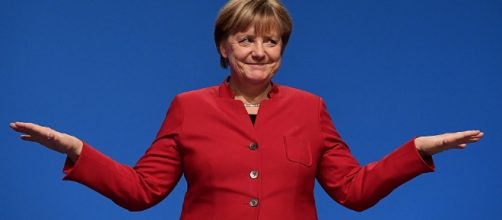For many, Theresa May's phone call to Angela Merkel yesterday may represent a substantial victory for the UK considering the German Chancellor agreed that trade is more important than the size of Britain's divorce bill. Yet given her record on fudging the Brexit negotiations, actions speak louder than words. Her commitment to urge EU politicians to speed up the negotiations on trade must translate into reality. If one reflects upon Mrs Merkel's behaviour since the discussions started, it is clear she cannot be trusted to deliver on her word to the Prime Minister.
Only recently, the Chancellor warned Britain that "time was running out" to agree a trade deal with the trading bloc before a major Brexit summit in December. They placed the onus on the UK to speed up the negotiations, even though their Chief Negotiator, Michel Barnier, has purposefully thwarted progress to concentrate on the size of the UK's divorce settlement. Yet as Mrs May confirmed, the ball is in Brussels' court now. During her Florence speech, she provided Brussels with a compromise of transitional arrangements after this country formally leaves the EU on March 2019, only to have that offer rebuked.
Mrs Merkel is not interested in economic stability
Mrs Merkel is not interested in economic stability.
Her preferred position is for Brexit to be cancelled altogether or for Britain to remain a permanent member of the European Economic Area. She said that was her position when the talks first started. Her only aim is for the EU to transform into a single political union. Her counterparts, like Juncker, hid their intended aims from the British people during last year's referendum and since Article 50 was triggered, the European Commission's President announced his plan to create a single European army.
Both President Juncker and Mrs Merkel know they cannot achieve their goals of European unity if one country leaves.
Mrs Merkel is prioritising politics over economics
The lobbying efforts of German car manufacturers may well fall on deaf ears. Their suffering does not matter as long as Brussels succeeds in preventing Britain from quitting the trading bloc without an adequate deal.
It is disappointing Mrs Merkel is prioritising politics over economics.
Her commitment to the Prime Minister that the Brexit negotiations must focus on trade over a divorce bill is welcome, but it will not mean anything. Preserving the European political project is vital to her, and Brexit jeopardises the EU's existence.

